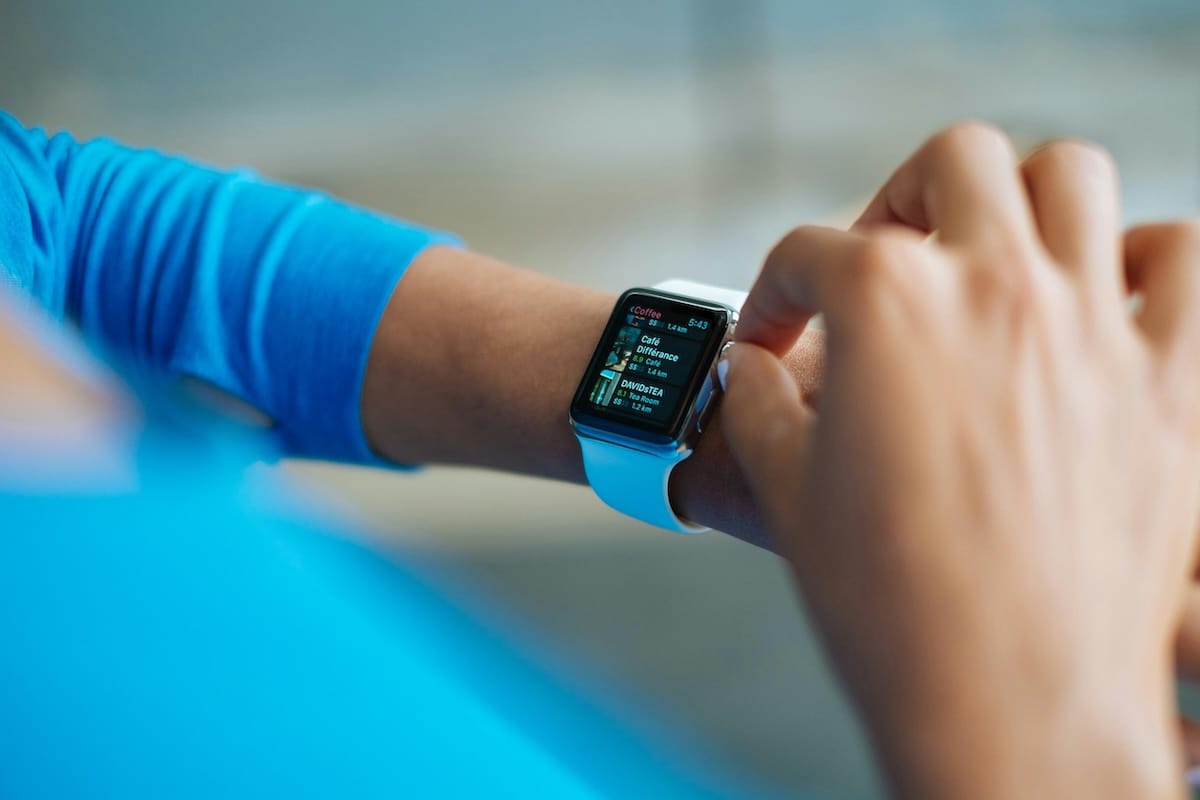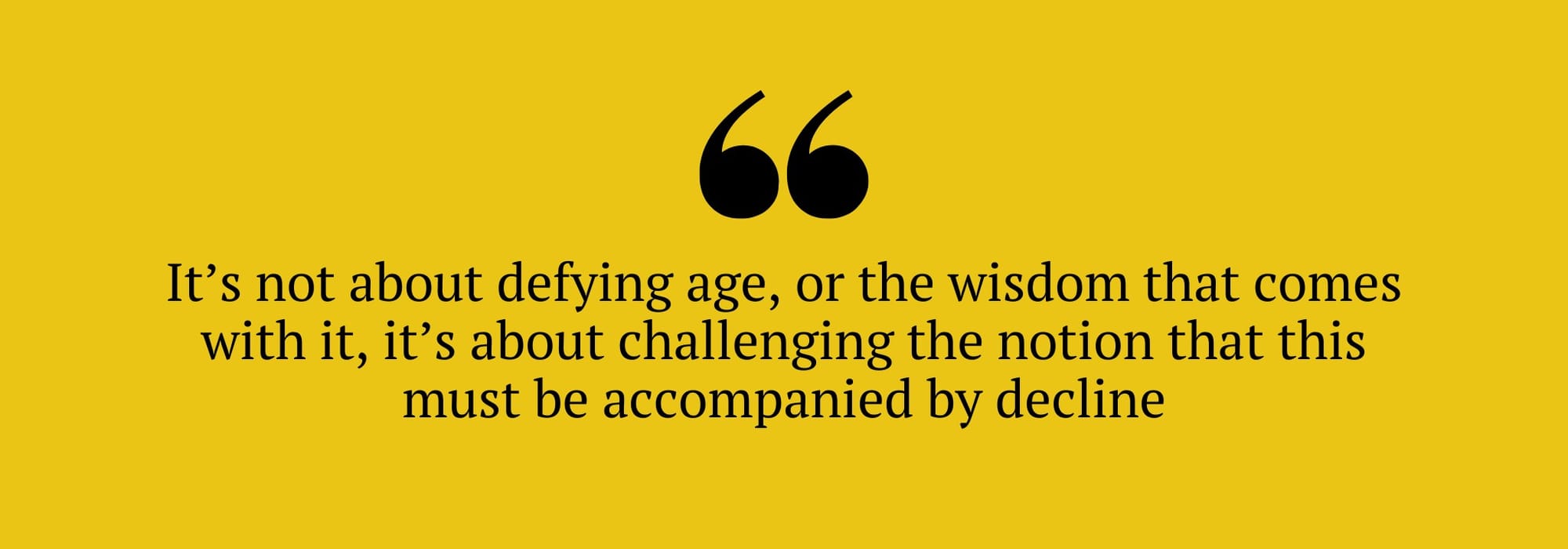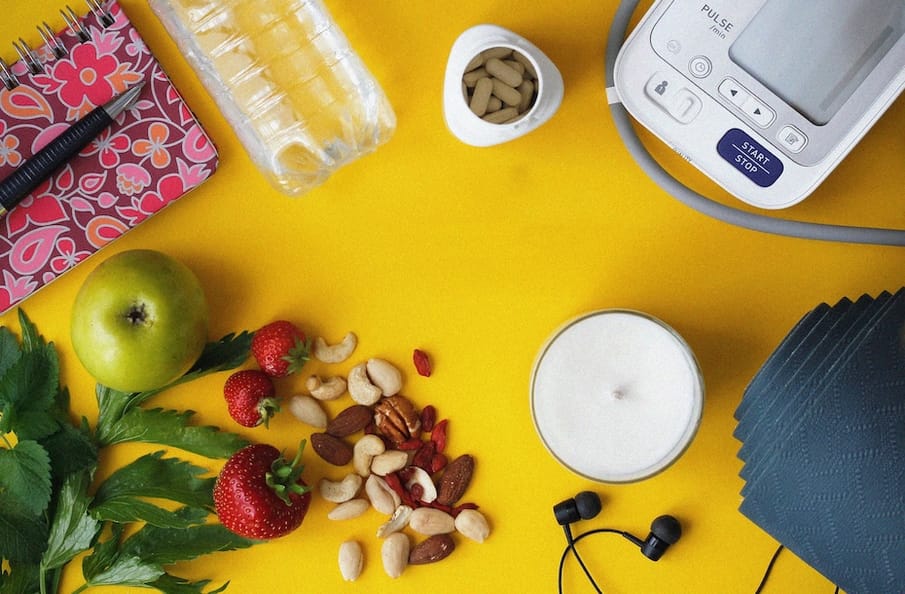While the public desire for a pursuit of ‘youth’ is often the narrative pushed by the media, is the real desire more about living better for longer – and could biohacking be the key to achieving this?
I was recently at a bar when someone took it upon themselves to guess my age. They put me at 46 which, at a mere 36, cut deep. And while I appeared to stand a decade older – at least according to this one very audacious man – there is a growing group of people who seem to be defying the ageing process. Not only do they look younger, they are biologically younger than their chronological age. They call this biohacking.
Longevity expert Leslie Kenny, founder of Oxford Healthspan, calls biohacking an “umbrella term that refers to practices that ‘hack’ our health and bodily systems to optimise performance, health, or longevity”.
Where I sat on this spectrum was questionable. I enjoyed learning about new hacks, and was a sponge for wellness trends. Light exposure? No problem, I’ll sit outside and watch the sunrise. Reduce glucose spikes? Sure thing, I’ve got apple cider vinegar for that. Fitness? Yes, I could probably outrun you. But my sleep was abysmal; I enjoyed wine way too much, and my five-a-day sat at a fraction of where it should be.
Biohacking v living well
The question is, when does taking good care of ourselves become biohacking, and where does the distinction lie? Leslie Kenny notes the latter is “more extreme” and transcends beyond the “basics needed to maintain a healthy lifestyle”. Dr Alka Patel, also known as the Longevity Lifestyle Doctor, says biohacking isn’t just about living well, but about “pushing the boundaries of what our bodies and minds can do”. While good health, by its very nature, would provide better outcomes for our lifespan, biohacking takes things a step further – it’s about taking control of our “biological narrative”, as Dr Patel calls it.
Many of us subscribe to traditional paradigms of what health means, and these would, of course, form part of what biohacking is – be this through nutrition, meditative practice, social interaction, or exercise. The biohacker’s experience, on the other hand, is highly subjective. Dr Patel sees it as a three-part process that consists of testing, tracking, and treating.

Testing, tracking, and treating
Testing involves using diagnostic tools to gain insight into a person’s biological function. This can even go so far as to test our biological age – not the years we’ve lived, but our age at a cellular level. By monitoring glycan levels in the body, they can gauge the inflammatory state of the immune system which can be used to predict biological age, explains Leslie Kenny.
Beyond testing, the biohacker will generally analyse their data through wearable technology, such as continuous glucose and blood pressure monitors, and smart rings that could measure sleep quality. Their methods are highly synchronised to their own experiences.
Through testing and tracking, they can then effectively ‘treat’ using methods deemed to influence the body’s underlying mechanisms. This would cover nutritional optimisation such as intermittent fasting, supplementation, and physical activity. These would all seek to challenge the ageing process in a way that the broader stroke of a healthy lifestyle could not.
Biohacking from one person to the next
Leslie Kenny refers to many biohacking practices as “niche”, and she’d be right. Both experts and self-confessed biohackers can find themselves more than 30 years younger than their chronological age – according to their biology – through methods that suit their own health needs. Leslie enjoys a morning concoction rich in magnesium, iron, copper, collagen, and other brain-boosting ingredients. She takes supplements to promote cell renewal, and uses blood-flow restriction bands to stimulate the release of hormones.
Dr Patel, who prefers the term “health hacking”, utilises morning sunlight, cools her bed to create a sleep-friendly temperature, uses infrared light, and traces her brain’s electrical activity (EEGs), among a host of other rituals that aim to serve her body well as she ages.
It seems this “personalised journey or experimentation and evaluation”, as Dr Patel calls it, is not for the faint-hearted. It’s a “dedicated pursuit” that requires a “deep commitment to continuous learning, self-monitoring, and adaptation”. And while Dr Patel views it as not just adding years to life, but adding life to those years, there are undoubted biases in how this might be achieved for the general population.
A rich man’s game?
Not only does investing in the latest testing and supplementation require a dedication of funds, it also implies that you have time to devote your life to achieving optimal health. This isn’t realistic for a large chunk of the population, just trying to survive as opposed to thriving. While many struggle to find the time for basic exercise, or to afford healthy food options, let alone buying gadgets that measure our glucose levels, it seems biohacking could never be universal.
Dr Patel acknowledges the financial status implications, but ultimately believes the philosophy behind biohacking – of improving our health potential – has application to us all. Leslie Kenny points to the many biohacking tools that don’t cost anything such as cold showers, doing simple stretches, breathwork, making social connections, and simply getting outside more.
A very basic example of how you might draw a distinction between a biohacker and a layperson is through the lens of sleep. Leslie sees optimising sleep as one of the greatest ways to hack our health, and it is certainly something we all naturally try to improve through good habits. The biohacker, however, might use cooling pads, blue light-blocking glasses, and wear a sleep-tracking device in order to get more leverage when it comes to their Zs.
We might not all be able to hack our way to full health “potential”, as Dr Patel describes, but at least we’d benefit from small steps in the right direction.
A quest for eternal youth
There is undoubted merit in the biohacker’s way of life, as we all ought to strive for good health in order to lead happy and fulfilling lives. As Dr Patel notes: “The pursuit of longevity should not be about merely enduring a longer life, but enhancing the quality of each day we have.” The problem is that this isn’t necessarily the message we receive in the face of what appears to be unattainable standards of ageing.
As Leslie points out: “We live in a society where youth is rewarded.” This extends far beyond the realms of just biohacking. It’s about the constant need to achieve more across our lives in terms of beauty, health, and success. While those in privileged positions might feel empowered, there are those who see this quest for ceaseless vitality as simply out of reach.

But perhaps this thinking is flawed. According to Dr Patel, it’s not about defying age, or the wisdom that comes with it, it’s about challenging the notion that this must be accompanied by decline. And in a world where we are living longer, but not necessarily in good health, there is learning to be had here. By shifting the broader cultural understanding from one of managing illness to one of optimising health, we all stand to benefit.
A balancing act
From the outside, it might seem a bit ‘out-there’ and unnatural. But what I’ve learned from these esteemed biohackers is that progress is possible – even without the means of hi-tech testing and ingredients I can’t pronounce. We can accept ageing as natural without necessarily bowing down to the idea that it means decline. It doesn’t mean forgoing enjoyment, but rather balancing how we treat our minds and bodies. And while the biohacker undoubtedly could outlive us all, it’s important to recognise that we can all make choices each day to improve the quality of our lives.


Comments